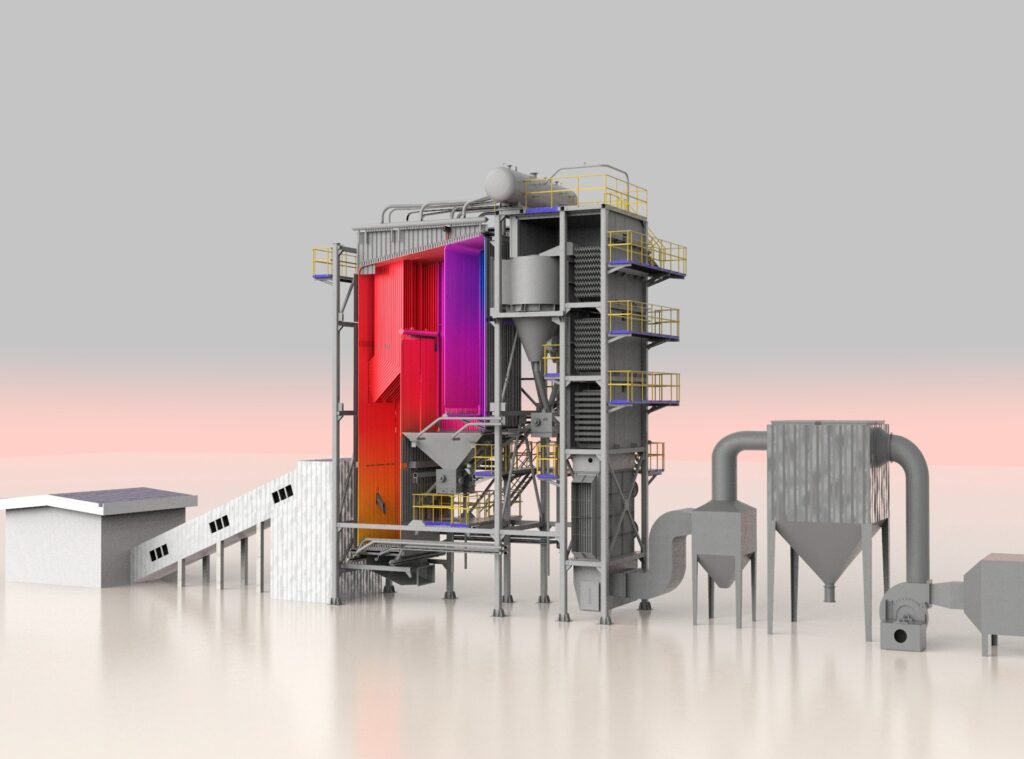In the current global push toward renewable energy, biomass power plants play a crucial role in generating sustainable electricity. These plants not only reduce reliance on fossil fuels but also help in managing organic waste efficiently. Modern operators are increasingly focusing on sustainable practices to maximize energy efficiency, reduce emissions, and ensure long-term operational reliability.
Efficient Resource Management
A critical aspect of sustainability in biomass power plants is efficient resource management. Operators implement advanced fuel handling systems, optimize boiler performance, and carefully monitor energy output to minimize waste. Through continuous monitoring and predictive maintenance, plants can reduce unplanned downtime, improve fuel efficiency, and ensure that every unit of biomass contributes to clean energy production.
One key area of improvement involves careful attention to epc biomass boiler island projects cost control. By meticulously planning procurement, construction, and commissioning phases, plant owners can reduce unnecessary expenses while maintaining high operational standards. This approach ensures that the project remains financially sustainable without compromising environmental or performance goals.
Integration of Advanced Technologies
The integration of advanced technologies has transformed the way biomass power plants operate. Modern control systems allow operators to track emissions in real-time, adjust combustion parameters, and optimize energy output. These technologies not only improve efficiency but also reduce the environmental footprint of the plant.
In addition, successful plants often leverage lessons learned from successful epc biomass boiler island projects, implementing best practices in both engineering and operations. These case studies guide operators in optimizing plant layout, selecting high-performance equipment, and ensuring seamless integration of the boiler island with the overall power generation system.

Promoting Environmental Sustainability
Sustainable operations in biomass power plants also focus on reducing emissions and minimizing ecological impact. Techniques such as flue gas cleaning, ash recycling, and advanced combustion control are increasingly standard. Proper handling of by-products ensures that biomass plants contribute positively to local communities, providing energy while minimizing environmental risks.
Furthermore, combining energy production with local waste management initiatives enhances sustainability. By sourcing biomass from agricultural residues or organic waste, plants reduce landfill usage while creating a circular economy that benefits both the environment and local industries.
Runh’s Expertise in Sustainable Biomass Operations
Runh Power has emerged as a leader in delivering EPC solutions for biomass power plants worldwide. Their expertise covers the full lifecycle of biomass power plants, from design and engineering to construction, commissioning, and operational optimization. Runh emphasizes sustainability in every project, incorporating energy-efficient equipment, advanced monitoring systems, and environmental best practices.
Through rigorous project management, Runh ensures effective epc biomass boiler island projects cost control, allowing clients to maintain both financial and operational efficiency. Many of Runh’s projects serve as industry benchmarks, demonstrating the viability of combining economic performance with environmental responsibility.
For example, several successful epc biomass boiler island projects managed by Runh have achieved notable improvements in efficiency, reduced emissions, and enhanced reliability. These projects illustrate that sustainable practices are not only environmentally responsible but also economically advantageous, helping clients meet regulatory standards and long-term operational goals.
Future Outlook
The future of biomass power plants lies in continuous technological innovation and sustainable operational practices. Integration with digital monitoring, predictive maintenance, and hybrid renewable systems will further improve efficiency and reduce emissions. Operators that adopt comprehensive sustainability strategies will position themselves as leaders in the renewable energy sector, contributing to global decarbonization efforts.
Conclusion
Sustainable practices in biomass power plants are essential for achieving reliable, environmentally responsible, and cost-effective energy production. By focusing on resource efficiency, advanced technologies, and environmental stewardship, operators can optimize performance and reduce ecological impact. Companies like Runh Power exemplify how sustainable operations, combined with effective epc biomass boiler island projects cost control and lessons from successful epc biomass boiler island projects, can deliver long-term value and contribute to a greener future.

 Instant
Quote
Instant
Quote Email
Us
Email
Us